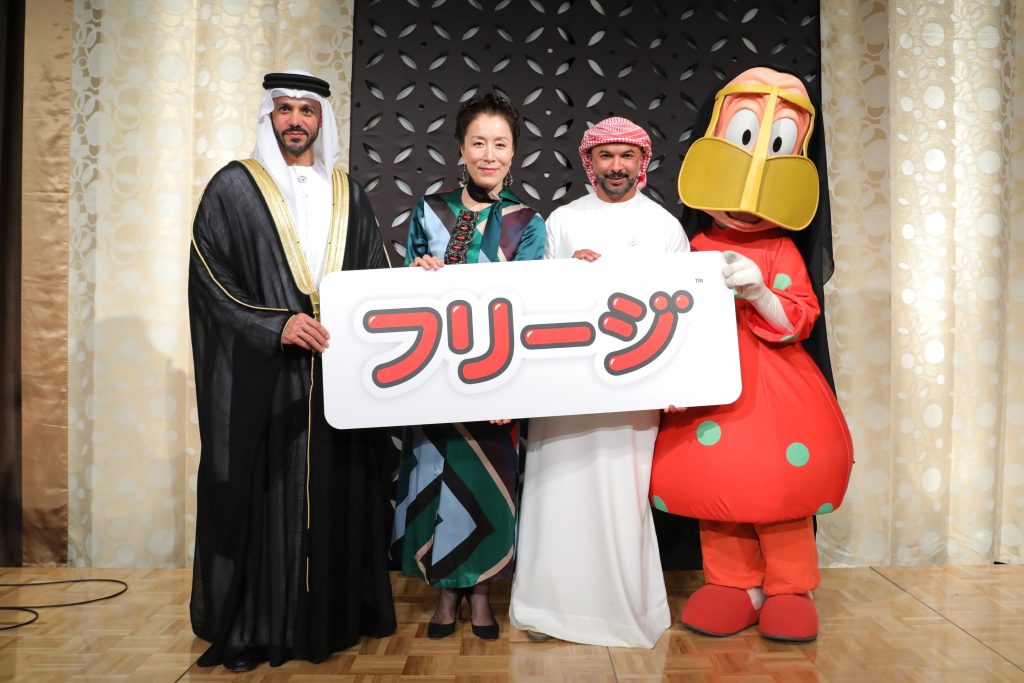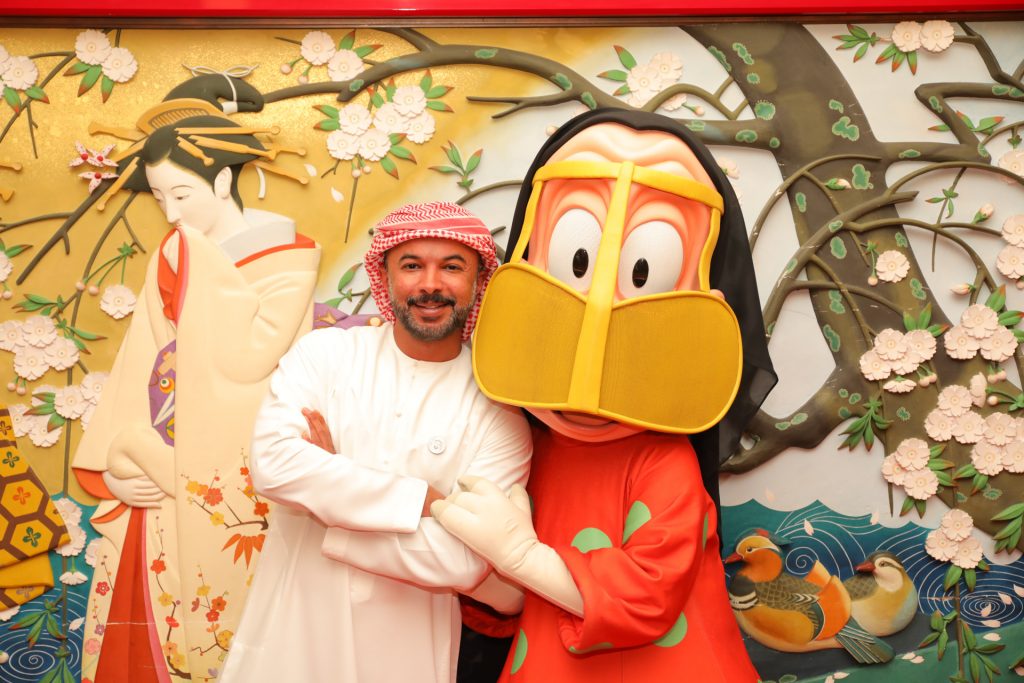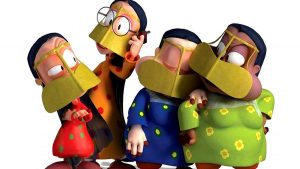



Amin Abbas Dubai
Since premiering in 2006, Middle Eastern cartoon Freej became the first Arabic animated show to be dubbed and broadcasted in Japanese. The show was aired in January last year on Tokyo MX.
The show has gained region-wide and cross-generational popularity around the Middle East since its release.
The 3D animated series follows the stories of four elderly Emirati women (Um Saeed, Um Allawi, Um Saloom and Um Khammas) living in a secluded neighborhood in modern day Dubai. The women live a peaceful life in the midst of the ever-expanding city around them, but the city's boom unveils new social issues every day that they have to tackle and solve in their own simple and humorous way.
Mohammed Saeed Harib, creator of Freej, said he had a background in arts and animation and had a passion for photography, color theory and 3D design.
“As much I loved studying animation, I did not expect to embark on a journey like this,” he said.
“Freej started as a university project, where I was asked to develop characters that can be ambassadors to my culture. In the beginning, I started sketching characters that looked like Aladdin and Ali Baba because I came from that culture,” he explained.

“But, I was quickly denied by my professor, who said I needed to reach my immediate culture. I then have realized that we are lacking in that area.”
Harib said his grandfather was a pearl diving captain and felt there was enough representation of the adventures of male ancestors.
“I gravitated towards stories about the warmth of the grandmothers that no one represented in media. I liked their physical and social attributes. They are known to give advice and use harsh words in the same sentence, so I thought there was something very quirky and wholesome about that,” he added.
The creator of Freej said he sketched Um Saeed (the mother of Saeed), who was based on his grandmother, as the first character in 1998. In 2003, he started planning the making of Freej and the first season of the show was released in 2006.
Speaking about the challenges he faced in the show, Harib said it was expensive to deliver, and he had trouble finding writers who could write animated shows.
He added that finding the right cast to voice the characters on the show was also difficult.
“We were passionate and inventive in coming up with solutions to deliver the show. The cast were all my friends. I also did the writing myself while traveling back and forth between the UAE and India twice a week for six months to manage the whole project,” Harib said.
“Looking back at Freej after 15 years, the show cemented its position as the number one cultural entertainment brand in the Middle East and one of the most famous Arabic media brands globally,” he added.
Harib explained that most Middle Eastern shows don’t last more than three seasons, but Freej had lasted five seasons.
The show had also become the face and cultural icons of Dubai when people were flying through Fly Dubai airlines, he said.
Speaking of his inspiration for Japanese anime and culture, he said: “I grew up watching many Arabic dubbed Japanese anime series such as Arabian Nights: Sinbad’s Adventures’ (Arabian Naito: Shindobatto no Boken), (Captain Tsubasa), Future Boy Conan and Astro Ganga.”
Harib said he had visited Japan twice and enjoyed the “food atmosphere & places like Harajuku.”
Speaking to Arab News Japan about the Japanese dub of Freej, Harib said: “We got a delegation from Japan organized by the Japanese embassy in UAE and it included many media houses like Sony Music. They have visited our studios and were very keen to get something from this region and broadcast it in Japan.”
“During their search in picking the content, they picked up Freej because it fulfilled the content requirements that interest the Japanese market when it comes to the fascination of the Middle East. Its Emirati culture is similar to the Japanese culture in honoring and respecting elders. So it ticked all the boxes but there was some fear as the show was made for the people of the Middle East and to do well in other countries and to expose the culture was a challenge in mind. However, we managed to finalize the deal and it was broadcasted in Japan on January 2019,” he said.
Harib said he was happy with voice cast the Japanese version of freej had.
“Japanese actress Atsuko Takahata heads the Japanese-language voice-over cast, voicing the character of (Um Saeed) in the show and the outcome of the Japanese dub was great,” he added.
Harib said the reaction and feedback he saw from the Japanese was “very positive.”
“They were very happy to see an offering from the Middle East and curious to know more about the region. They made the Japanese dub through all five seasons of the show,” he said.